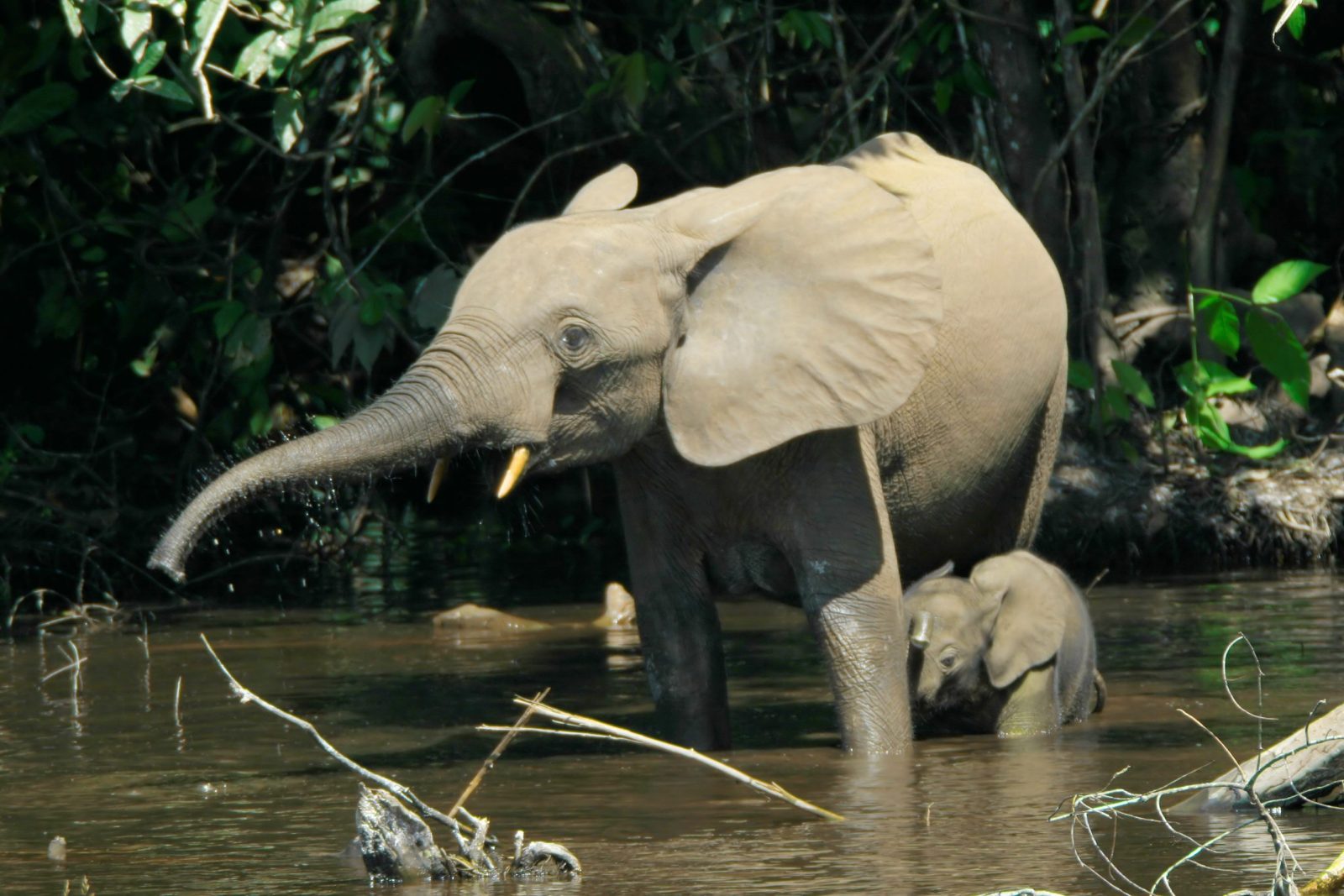African Forest elephants

There are three species of elephant, the African savanna elephant, African forest elephant and the Asian elephant.
With the African species, Forest elephants have declined 86% between 1986 and 2015, African Bush elephants declined 60% 1965 and 2015 leaving just over 400,000. African forest elephants are thought to number between 100,000 and 150,000.
Perhaps the most scary fact is that the African forest elephant was only declared as a separate species in 2021 only 2 years ago. These species are not particularly similar – indeed the Asian elephant is more genetically similar to the mammoth, than the African savannah elephant is to the African forest elephant!
The African forest elephants population has declined precipitably in the last few years. Given the recognition that the forest elephant is a separate species only came 2 years ago, it is hard to get accurate historic figures. Never-the-less, the combined african elephant species population was thought to be around 26 million in 1800, and 1.34 million in 1976. The estimate is currently around 100-200,000 forest elephants. One of the problems, is that the African forest elephant is an essential part of the ecosystem. There are many trees, which rely on forest elephants to carry their seeds through the forest, so that they germinate a good distance from the original plant (more than a few of the same plant in the same area, causes the pest that feeds on the tree to multiply to the point where it can kill the tree. While it is true that other animals like gorillas and chimpanzees can do this, they do it far less. Should the forest elephant be lost, the African rainforest is likely to be far less capable of of handling the various changes, like climate change that is coming.
The last strongholds are in Gabon (a survey last year suggested Gabon has 95,000 forest elephants, rather than the 60,000 that was originally thought) and the Republic of the Congo and Democratic republic of the Cong, with smaller populations remaining in other African countries (Cameroon, Central African Republic, Equatorial Guinea) and Cote d’Ivoire, Liberia and Ghana in west Africa. There is much space for forest elephants to greatly recover, if the poaching is able to stop.
Below this, you will see a video on this species, and below this is a list of any times that the african forest elephant has been mentioned within this blog.
Below this, at the bottom of the page, we hope to list places where you can go to see this species in the wild – if you work in conservation or tourism around this species, do get in touch. we would love to list you, and it costs nothing to be listed, we merely work on commission.
African forest elephants are now considered critically endangered, and African savannah elephants endangered, are the Asiatic elephants safe? And are we killing one of the few hopes humanity has? A guide to what remains
- Tim
- May 29, 2023
Forest elephants have been found to be more closely related to an extinct Asian elephant than to African Savannah elephants
- Tim
- May 30, 2022
Despite only relatively recently being defined as a separate species forest elephants are rapidly disappearing and this could have incredible impacts on the rain forest where they live
- Tim
- October 17, 2020
It seems climate successes don’t last: vast peatland to be destroyed for oil below in the Congo basin. Important habitat for forest elephants and gorillas
- Tim
- March 5, 2020
Forest elephants make a significant difference to the amount of Carbon that trees hold
- Tim
- July 22, 2019
Forest elephants
- Tim
- June 3, 2018
Indonesias leading University has proposed classifying Palm oil as a forest crop – This is insane, read on to find more – urgent condemnation needed
- Tim
- January 11, 2022
Might rising temperatures kill the Congo rainforest? Its a carefully balanced system
- Tim
- March 12, 2021
Elephant counting from space
- Tim
- February 4, 2021
There is some fear that the global warming temperature is already damaging the African rain-forests ability to survive and thrive
- Tim
- September 29, 2020
Two more elephants found dead in Sumatra
- Tim
- November 25, 2019
Another report stresses the importance of rewilding for climate change, and reintroductions
- Tim
- April 21, 2023
UK makes a respected decision to ban ivory sales, but not other body parts
- Tim
- July 28, 2022
One of the four remaining viable west African Lion habitat has been badly treated but perhaps it is now on the mend.
- Tim
- May 22, 2022
Species watch
- Tim
- May 11, 2022
Will Cop26 over shadow Kunming?
- Tim
- October 21, 2021
First documented attack on Gorillas by a group of Chimpanzees
- Tim
- September 13, 2021
Just 3% of worlds ecosystems classed as prestine!
- Tim
- May 9, 2021
150 influential figures including Stephen fry and the former archbishop of Canterbury among many others have written a letter to the government about extinction Rebellion
- Tim
- October 15, 2020
- 2
